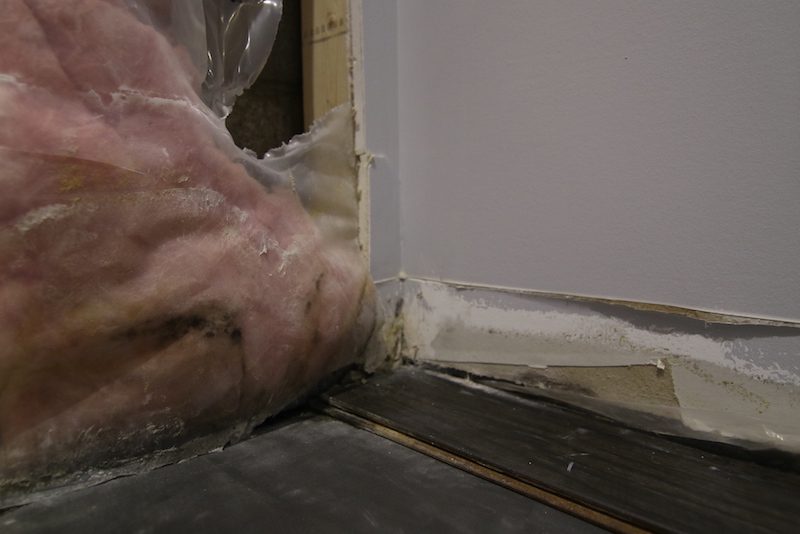What is condensation? It is water that collects on a cold surface as beads or as a vapour when humid air is in contact with it. When you fill a glass with ice water and take it outside to enjoy in the sunshine, your glass quickly becomes slick with moisture. Your glass isn’t leaking! You have created the conditions for condensation. In your basement, when hot air meets cold walls, you are also creating the conditions for condensation. Especially during the summer months, your basement is a cool haven from the heat of the day. When the warmth of the outside air comes in contact with the coolness of your basement walls, you have provided the environment for condensation to form.
Where Condensation May Appear
Even in a new home, you may find condensation in the basement. It is likely that the concrete walls are still in the process of curing which involves releasing some of the moisture from the water used to make the concrete. When the warm air hits the dampness of the curing concrete used to make your foundation walls and floors, you have the perfect conditions for the creation of condensation. It is highly recommended that you allow the concrete to totally cure or dry out before you finish the basement. Having a little condensation in an unfinished basement is not likely to damage anything, covering the walls and floors before they have totally dried may result in longer term problems in your basement.
How to Reduce Condensation
In addition to giving your basement walls and floors time to cure, you can use a dehumidifier to reduce the amount of moisture in the air. It draws the water out of the air to reduce how much humidity there is to be involved in the hot meets cold equation. You can limit the amount of warm air from outside that gets into your basement through windows or doors by ensuring they are closed and leak free. Remember it is that meeting of the warm air with the moisture or humidity of your basement that creates the condensation problem.
Vapour Barriers
Many homeowners will find that, in an attempt to waterproof the basement, a vapour barrier has been used. This barrier is usually made of a plastic or foil sheet that helps prevent moisture or water from the walls or floors. Using a vapour barrier is a good step to reduce condensation in your basement but you must make sure it is properly installed and sealed. Insulation materials are not airtight and might allow the warm air to reach the cooler walls; sheathing tape can limit the amount of air that gets past the barrier.
What is that Water?
Sometimes homeowners see condensation puddling on the floor of their basement and fear the worst; if there’s water, there must be a leak! A careful examination of the moisture will determine if there is a verdict of condensation or a larger problem. If you see a crack or other signs of water from outside getting into the basement, you need to deal with that right away. Getting basement waterproofing specialists to inspect your basement is a step in the right direction. City Wide Group has more than 50 years of experience in waterproofing basements in the Greater Toronto Area. Their highly trained and experienced technicians will recommend what repairs are necessary to return your basement to the dry, comfortable space you need.
Waterproofing Professionals
Homeowners naturally want to protect their family’s health and their investment in their homes by waterproofing their basement. Calling in the professionals to identify what is creating the moisture they are finding. Waterproofing the basement of your home provides you with the peace of mind that water or moisture will not wreak havoc with the very foundation of your home. City Wide Group is a family owned business that will give you that assurance and a lifetime, transferable warranty so that when you decide to sell your property you can demonstrate to potential buyers that your home’s foundation is sound.










